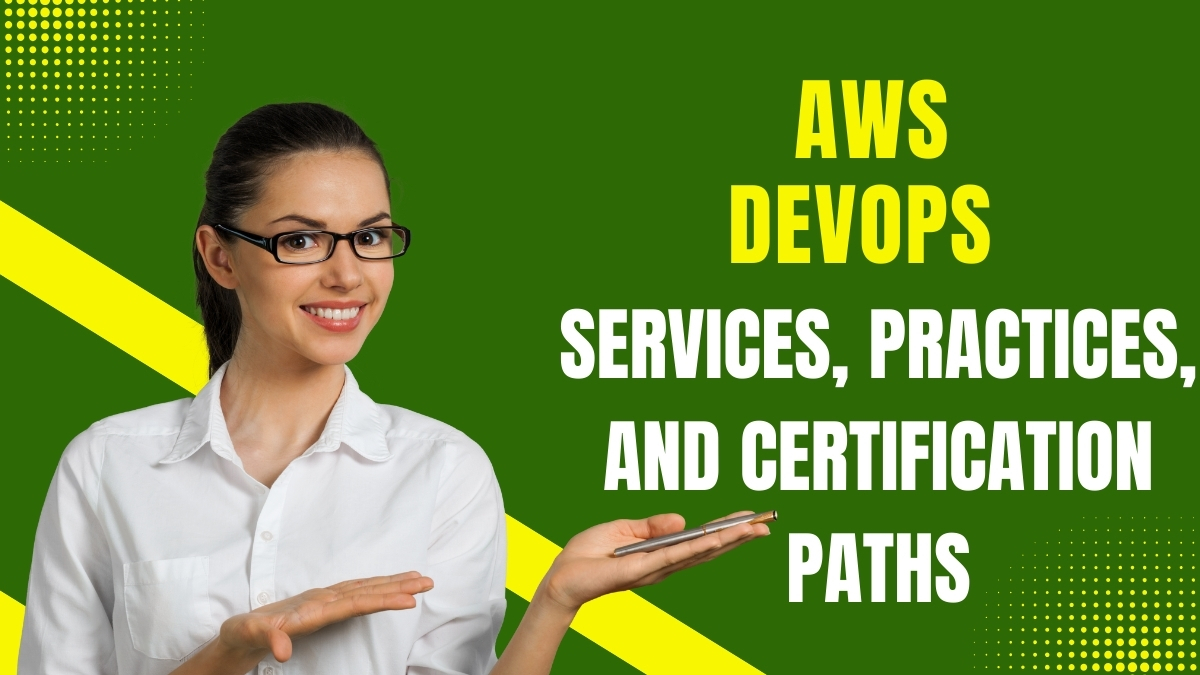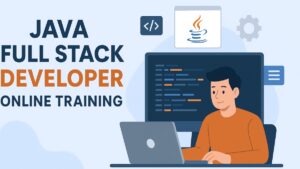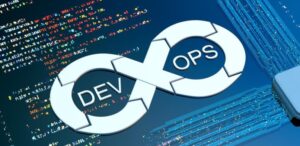AWS DevOps is a combination of AWS cloud services and DevOps solutions that allow organizations to develop, deploy and operate applications in the cloud effectively. The main concepts that are the focus of this integration include automation, continuous integration and delivery (CI/CD), infrastructure as code, and monitoring to revolutionize the process of software development and operations.
The Foundation: DevOps and Continuous Processes
DevOps is essentially a practice and strategy that is used to bring about rapid delivery of quality software. The main idea is to combine the development and operations teams to enhance their level of collaboration and productivity, to a large extent, by automating workflows.
The central element of AWS DevOps is the CI/CD pipeline, or a specific set of steps (build, test, deploy) that have to be followed in order to release a new software version.
Continuous Integration (CI): This practice is to integrate all working code of developers into a common mainline often, build and test the application.
Continuous Delivery and Deployment (CD): It is the process that takes place after the integration and involves staging and the deployment of the code, which makes the application available to the users reliably.
The adoption of DevOps in AWS renders the software delivery life cycle more efficient and effective. The actual advantages of integrating DevOps with cloud services include such features as removing downtime and adding scalability and a global presence while minimizing infrastructure costs.
Key AWS Services for CI/CD Pipeline Implementation:
| AWS Service | Functionality |
| AWS Code Commit | A fully operated source control service that is housed on protected and highly scalable Git-based repositories. It has the capacity to manage collaborative file tracking and versioning without necessarily running the system. |
| AWS Code Pipeline | Continuous delivery service, which is automatically constructed to build, test, and deploy user code upon each change, using user-specified release process models. It coordinates work processes into steps such as source, build, test and deploy. |
| AWS Code Build | An automatic build server containing the source code, unit test suites, and artefacts that are ready to deploy. It offers automatic scaling and pre-built build environments. |
| AWS Code Deploy | Plugs and automates the deployment and updates of applications to AWS EC2 instances of any size. It manages complexity, does not impact it when updating, and also automatically undoes in case some failures are noticed. |
| AWS Code Star | A cloud-based service that offers a template format when building, developing and deploying applications on AWS within a short time. It has a project management dashboard to monitor the applications continuously. |
These services, especially Code Pipeline, could be set to automate the release process, make it faster, but with quality checks being regularly performed on new changes.
Foundational AWS Services
AWS is the most popular provider of cloud computing in the market, with cloud computing services at affordable prices. Cloud computing involves the use of remote servers on the internet to store, administer and process data and eliminates the use of physical servers, which are on premises.
Key foundational AWS services frequently utilized in a DevOps environment include:
Amazon EC2 (Elastic Compute Cloud) offers scalable computing capacity with the capability of using virtual servers (instances) in the cloud and thus giving customers complete control of everything from the operating system through the applications being run. AWS has a calculated computational power of a number greater than the combined capacity of all competitors times six.
Amazon S3 (Simple Storage Service): A scalable and secure object storage service. Stored data are objects in containers called “buckets”. S3 is otherwise used hosting static websites with significant cost savings through the elimination of server maintenance and related costs.
AWS Lambda is a serverless computing service that allows you to execute code for any application or backend service with no requirement for provisioning or managing servers. Charging is calculated only based on the computation time used.
Amazon Virtual Private Cloud (Amazon VPC) offers customers a choice of deploying AWS resources inside a logically isolated network as they desire. The service offers total control of the network features, such as IP ranges of addresses, subnets, and routing tables.
AWS DevOps Best Practices
To get the best out of AWS and DevOps, some best practices are paramount and are largely about cost control and security:
Security and Access Management
Security controls should also become part of the operations and development lifecycle.
Identity and Access Management (IAM) helps with the proper governance and management of access to AWS resources. It’s a good idea to create roles for teams and grant service-specific access, and thus limit individual use to just resources specific to their tasks. Unlike the root user, IAM users should definitely have access only to specific resources.
Secure Credentials: Never share root account credentials. Enabling Multi-Factor Authentication (MFA) incorporates a much-needed measure of security that frequently comes through the creation of one-time passwords (OTPs).
VPC Security: For EC2 instances, Security Groups and Network ACLs (Access Control Lists) are used as virtual firewalls to limit incoming and outgoing traffic. Limiting IP addresses accessing VPCs and making sure all non-public applications are under private subnets are recommended.
Cost Optimization
It has highly flexible cost models with the aim of reducing expenses:
1. Pay As You Go: Pay and use only the computational resources and capacity utilised, and therefore, no initial cost.
2. Pay Less As You Get More: The Value of the service increases with higher usage of the service.
3. Save When You Reserve: Members may reserve materials for a certain period of time (1 or 3 years) and enjoy significant discounts.
Cost optimisation practices include right-sizing services (starting with minimal resources and scaling up as needed) and utilising the AWS Free Tier, which provides access to many services for free for 12 months, subject to usage limits.
AWS Certification Pathways
AWS certifications are a recognized program that certifies one’s proficiency and knowledge in utilizing Amazon Web Services. Obtaining this form of certification may bring one closer to accessing new job opportunities, career growth, and salary increases.
AWS offers 12 certifications across four levels:
1. Foundational Level: For beginner knowledge-based certifications with no experience. These are the AWS Certified Cloud Practitioner and the AWS Certified AI Practitioner.
2. Associate Level: Specialization certificates reflecting skills and proficiency that commonly suggest experience with on-premises or cloud information technologies. Examples are typical of the AWS Certified Developer Associate and the AWS Certified Solutions Architect Associate.
3. Professional Level: Certifications validating proficiency with advanced skills of designing secure, optimized, and up-to-date applications as a prerequisite of at least two years of prior cloud experience. Some examples of the certifications are the AWS Certified DevOps Engineer Professional and the AWS Certified Solutions Architect Professional.
4. Specialty Level: It enables one to perform intense research and become a trusted consultant in selected strategic domains like Networking, Security, or Machine Learning.
They also require at least a couple of years of experience with AWS environments and certify one’s knowledge of how to provision, operate, and manage distributed systems. Some of their jobs include implementing and managing continuous delivery and automating infrastructures. Others are defining and deploying monitoring metrics and coming up with fault-tolerant applications.
Conclusion:
AWS DevOps is now not only an option in careers, but also a requirement in the lives of IT professionals who want to remain competitive in the cloud-based world today. AWS DevOps enables workers to automate processes, enhance teamwork, and expedite the process of software delivery with its broad assortment of offerings, best practices, and defined certification journeys. Knowing such tools as CI/CD pipelines, Infrastructure as Code, and monitoring systems, learners have access to the highest-paid employment opportunities in the leading companies in the IT field. Certifications also help to ensure that you have the knowledge, which opens up international careers and the potential for career development.
In IntelliQ IT Training, we offer industry-specific AWS DevOps Training that aims at enabling you to master real-life implementations of both cloud and automation. By providing our well-trained trainers, practical projects and placement, you will learn not only the theory but also become confident enough to apply it in the workplace. Join the IntelliQ IT and make the next big leap towards your IT career today!







